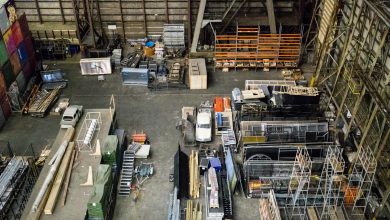Decentralized Autonomous Organizations (DAOs): Redefining Governance with Crypto

In the rapidly evolving landscape of cryptocurrencies, one concept that has gained significant attention is decentralized autonomous organizations (DAOs). These innovative entities are revolutionizing traditional governance structures by leveraging the power of crypto. With the rise of platforms like Crypto Leverage Trading, DAOs are becoming increasingly popular and are poised to reshape the way we govern and collaborate.
At its core, a DAO is a digital organization that operates on a blockchain network, such as Ethereum. Unlike traditional organizations, DAOs are governed by a set of smart contracts, which are self-executing agreements with the terms of the agreement directly written into code. This allows for the automation of decision-making processes and ensures that the organization’s rules and operations are transparent and immutable.
One of the key features that sets DAOs apart from conventional organizations is their decentralized nature. In a traditional organization, decisions are typically made by a centralized authority, such as a board of directors or a governing body. In contrast, DAOs enable decentralized decision-making, where every participant has a say in the organization’s operations. This democratic approach to governance is made possible through the use of cryptocurrency tokens.
In a DAO, participants hold governance tokens that represent their voting power within the organization. These tokens can be acquired through various means, such as contributing capital, providing services, or participating in the organization’s activities. The more tokens one holds, the greater their influence on the decision-making process. This system incentivizes active participation and aligns the interests of the participants with the success of the organization.
crypto leverage trading, a popular trading platform in the cryptocurrency space, has embraced the DAO model to redefine governance within its ecosystem. By utilizing smart contracts and governance tokens, Crypto Leverage Trading is able to provide its users with a platform that is transparent, efficient, and community-driven.
One of the primary advantages of DAOs, especially in the context of Crypto Leverage Trading, is the elimination of intermediaries. In traditional financial systems, intermediaries such as banks or brokers play a significant role in facilitating transactions and ensuring trust between parties. However, these intermediaries often come with high fees, slow processing times, and limited accessibility.
By leveraging the power of blockchain technology, Crypto Leverage Trading DAO eliminates the need for intermediaries. Trades can be executed directly between users, reducing costs and increasing the speed of transactions. Additionally, the use of smart contracts ensures that trades are executed automatically and without the need for a third party to oversee the process. This not only streamlines the trading experience but also enhances security and trust.
Furthermore, DAOs provide an avenue for community involvement and decision-making. In the case of Crypto Leverage Trading, users who hold governance tokens have the ability to propose and vote on changes to the platform’s rules and operations. This ensures that the platform evolves in a way that aligns with the needs and preferences of its users.
The community-driven nature of DAOs also fosters a sense of ownership and accountability among participants. When users have a direct stake in the organization’s success, they are more likely to actively contribute to its growth and development. This can lead to a more vibrant and engaged community, which in turn benefits the entire ecosystem.
In addition to enhancing governance and community participation, DAOs also enable innovative funding mechanisms. Traditional organizations often rely on venture capital or loans to finance their operations. However, DAOs have the potential to disrupt this model through the use of decentralized finance (DeFi) protocols.
In the context of Crypto Leverage Trading, DAOs can leverage DeFi platforms to raise funds through mechanisms such as decentralized lending or token sales. This opens up new avenues for funding and allows for a more inclusive and democratic approach to capital formation. Rather than relying on a select group of investors, DAOs can tap into a global network of individuals who are passionate about the project and willing to contribute.
While DAOs offer numerous advantages, they are not without challenges. One of the primary concerns surrounding DAOs is the potential for malicious actors to exploit vulnerabilities in smart contracts. In the past, there have been instances where DAOs have been hacked, resulting in significant financial losses. However, as the technology matures and security measures improve, these risks are being mitigated.
Regulatory uncertainty is another challenge that DAOs face. As governments around the world grapple with the regulation of cryptocurrencies and blockchain technology, the legal status of DAOs remains unclear. However, as the benefits of DAOs become more apparent, it is likely that regulators will develop frameworks to accommodate these innovative entities.
Conclusion
Decentralized autonomous organizations (DAOs) are redefining governance with crypto. Through the use of smart contracts and governance tokens, DAOs like Crypto Leverage Trading are revolutionizing the way we collaborate, govern, and finance organizations. By eliminating intermediaries, empowering communities, and leveraging decentralized finance, DAOs are paving the way for a more transparent, efficient, and inclusive future. As the crypto landscape continues to evolve, DAOs are poised to play an increasingly significant role in shaping the way we govern and interact with digital organizations.




